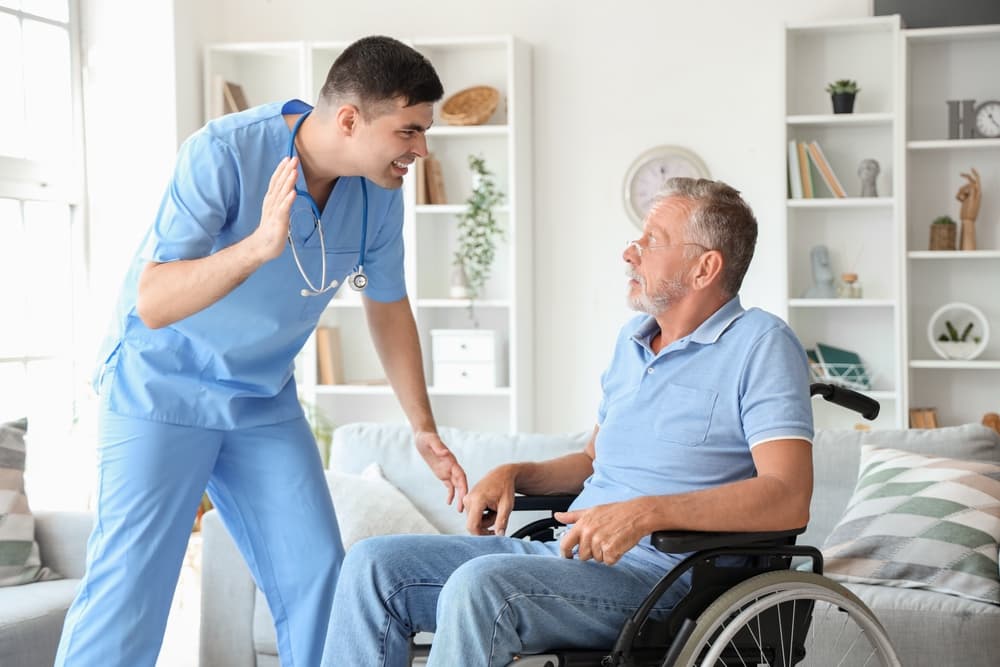Families look to nursing homes for compassion, safety, and care when they entrust their loved ones to them. Unfortunately, nursing home injuries are a reality for many residents, ranging from minor accidents to serious cases of neglect and abuse. For families, navigating the aftermath of such an incident can be overwhelming. To ensure responsibility and safeguard the rights of vulnerable residents, it is imperative to comprehend the fundamentals of nursing home injury claims.
Why Nursing Home Injuries Happen?
It is the responsibility of nursing homes to ensure a secure environment; however, injuries frequently occur as a result of inadequate personnel, inadequate training, or the disregard of safety protocols. Slips and falls, medication errors, malnutrition, bedsores, and even physical or emotional abuse are among the most common issues. Families should be aware that many of these incidents are preventable. A lack of proper supervision, failure to monitor medical conditions, or ignoring safety standards can all lead to harm.
The first stage in determining whether a legal claim is justified is to identify the underlying causes. While some injuries may be genuine accidents, others could be the result of negligence or systemic failures within the facility.
Recognizing The Signs Of Neglect Or Abuse
Often, residents themselves may not speak up about mistreatment due to fear, cognitive decline, or an inability to communicate. Families play a crucial role in noticing red flags. Sudden weight loss, unexplained bruises, poor hygiene, withdrawal from social interaction, or a general decline in health can all signal deeper issues.
Trusting your instincts is important. If something seems off during visits, it may be worth looking closer. Early recognition and documentation of concerns can help protect your loved one and build a stronger case should legal action be necessary.
The Importance Of Documentation
When a family suspects an injury or mistreatment, thorough documentation is key. Keeping records of medical reports, photographs of visible injuries, detailed notes of conversations with staff, and copies of facility communications can make a significant difference.
Documentation not only strengthens a potential claim but also creates a clear timeline of events. This helps demonstrate whether the facility acted responsibly or allowed unsafe conditions to persist. Families who gather evidence early are often better positioned to pursue justice. Families seeking more information on how to protect their loved ones and pursue justice after an injury can visit https://nursinghomelitigator.com/about/ to learn more about the dedicated legal support available.
Understanding Legal Responsibility
Both federal and state laws mandate that nursing facilities maintain specific standards of care. This includes ensuring residents receive adequate medical attention, nutrition, hydration, and a safe living environment. When a facility fails in these duties and a resident suffers harm, they may be held legally liable.
A nursing home injury claim typically falls under personal injury or medical negligence law. Families should understand that such claims are not just about compensation, but about holding institutions accountable so future residents are better protected.
The Role Of Legal Guidance
It can be difficult to pursue a nursing home accident lawsuit. Each case involves detailed investigation, medical evaluations, and careful review of facility records. Seeking the assistance of a lawyer with experience in nursing home injury claims is frequently beneficial to families.
In addition to collecting expert testimony, negotiating with insurance companies, and, if required, representing the family in court, a lawyer can assist in determining if the harm was caused by carelessness. Having a knowledgeable advocate can ease the emotional burden while ensuring the case is handled effectively.
What Families Can Expect In The Process?
The process of filing a nursing home injury claim generally begins with an initial consultation with an attorney. From there, investigations are conducted to gather evidence, review medical files, and assess staff conduct. In some cases, claims are settled out of court through negotiations; in others, they may proceed to trial.
Families should be prepared for the process to take time. While it can be emotionally taxing, the pursuit of justice often provides a sense of closure and reassurance that action is being taken to prevent similar harm to others.
Protecting Loved Ones Going Forward
Even as families pursue legal claims, ensuring ongoing safety is equally important. This may involve transferring the resident to another facility, increasing visit frequency, or working closely with healthcare providers to monitor care. Legal action addresses past harm, but proactive involvement helps safeguard loved ones in the future.
Final Thoughts
Nursing home injury claims are about more than financial compensation—they are about dignity, accountability, and protecting some of the most vulnerable members of society. Families who understand the basics of how these claims work are better equipped to advocate for their loved ones. By recognizing warning signs, documenting evidence, and seeking legal guidance, they can ensure justice is pursued while protecting the safety and well-being of those they care about most.










